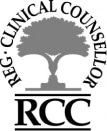Anger Management Counselling & Therapy in Vancouver, and Online Across BC and Canada
Anger is both a powerful motivating emotion, and one that can be destructive without proper redirection and understanding of your underlying needs and automatic feelings and perceptions connected with it. This is because these unconscious motivational emotions and needs are connected to past experiences. Trauma does not only mean the “Big T” trauma of life and death.
The “small T” trauma people experience especially in early development where there is no conscious memory of it still sticks with them as an experiential memory in the emotions, body, and impulses. This “Little t” trauma leads to feelings of powerlessness, being stuck, trapped, or overwhelmed.
In the present, this experiential memory is unconsciously activated every time there are similar cues and features (i.e., reminders) in the present situation that trigger this emotion and can lead to behaviour such as aggression or maladaptive coping mechanisms.
Anger management counselling at Wellspring involves a combination of EMDR Therapy, Emotion-Focused Therapy, and Cognitive-Behavioral Therapy to help understand, channel, and address the root cause of the disproportionate anger and form new ways of responding that is more constructive.
ANGER THERAPY DETAILS
Relationship and communication skills are often a big part of counselling for anger management and therapy because anger can so often negatively impact a person’s relationships with loved ones and even at the workplace. The interpersonal skills that are taught and experientially practiced focus on fostering self-agency, emotional understanding and recognition in self and others, and on constructive action and connection.
As with the process of most psychotherapy, self-esteem and individuation of self from the ‘internalized other’ will inevitably be part of therapy for maladaptive anger too. There are many common steps in psychotherapy that help with many different ‘presenting issues’ that can be tailored to a specific concern. For example, with dealing with the concern of maladaptive secondary emotions such as anger – this is not to say that anger in itself is maladaptive – that leads to unconstructive behaviors, the therapeutic management of anger may include experientially learning:
How the brain and mind work so that you can better understand why you feel and behave the way you do as it relates to the reactions you have.
What stress is and how to best manage it so you can maintain some ‘emotional balance’ during the tsunamis of impulse and red hot anger.
How to identify hidden thoughts, feelings, and beliefs apart from those that were internalized during development that have led to maladaptive anger issues.
How to form new, more adaptive and constructive beliefs about yourself, others, and the world as these inform the automatic interpretations and expectations that you have.
Develop more constructive and harmonious ways of communicating and relating with others (and self) with a focus on respecting your and their emotional boundaries and fostering self-agency and autonomy to promote greater connection and validation. The focus on constructive expression of what upsets you in the time and setting that will be most receptive for both people would be a goal.
How to discover, understand, and manage the different types and layers of emotions that may be underlying ‘anger’ to the underlying needs associated.
Gain new thinking tools and problem-solving techniques to better deal with life’s challenges to give you greater self-agency and autonomy that also helps with managing or mitigating when anger becomes maladaptive and not commensurate with the present situation.
Learn helpful and practical principles to better approach challenges in life with greater peace of mind and success.
ANGER THERAPY PROCESS
The process of counselling and psychotherapy for anger management starts with better understanding the mind and brain as it relates to the powerful emotions and tendencies related to aggression.
Next, learning stress management can be helpful to assist with mitigating the ‘tsunami’ of emotion and impulses that anger can bring in the moment. Next we would explore other underlying emotions and the needs that are connected with the anger. We would explore how these relate to potentially unmet needs in early development.
After this we construct a plan for how to begin to get these ‘emotional needs’ met in the present, particularly with regard to the need for emotional boundaries and constructive self-empowerment in present life.







